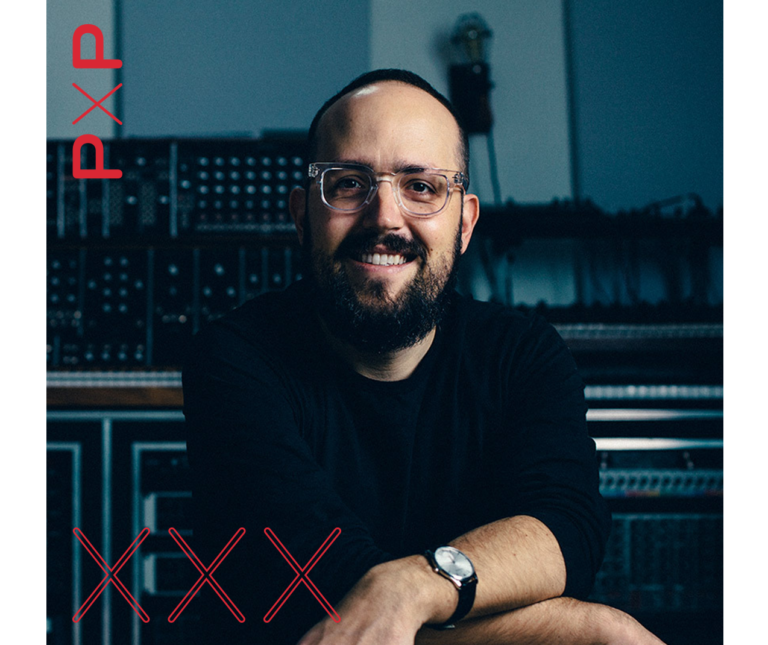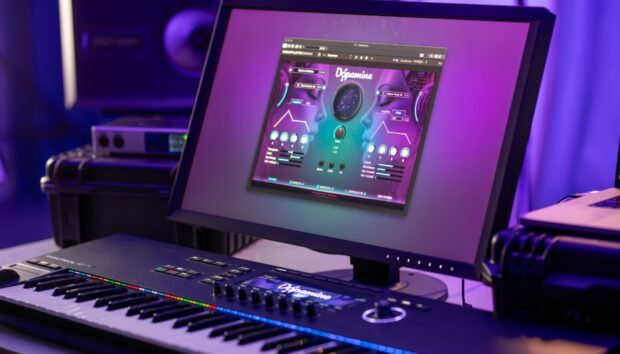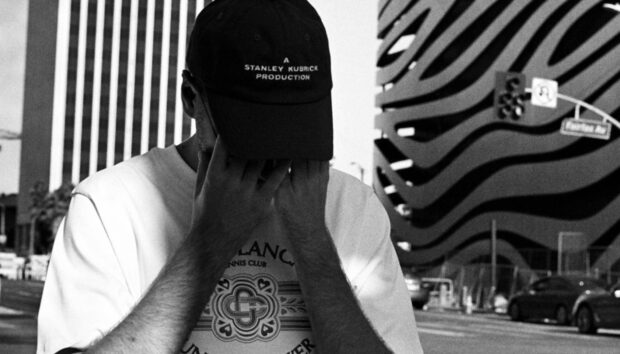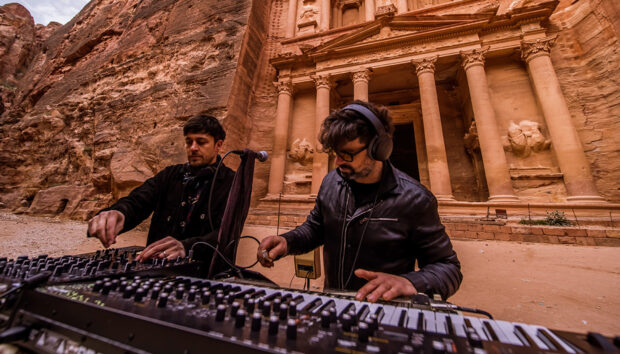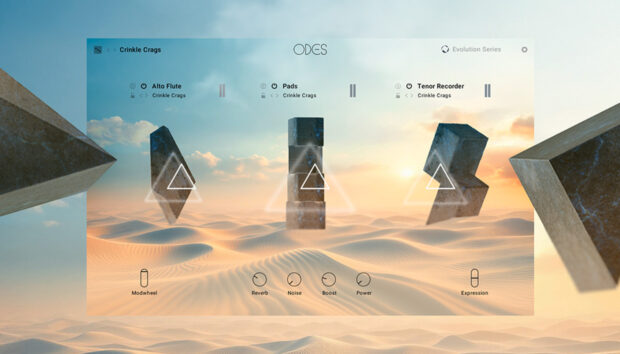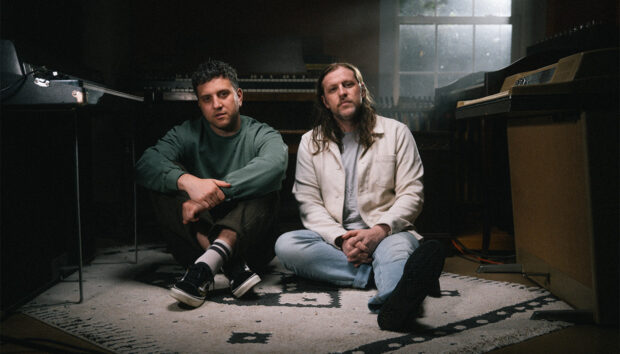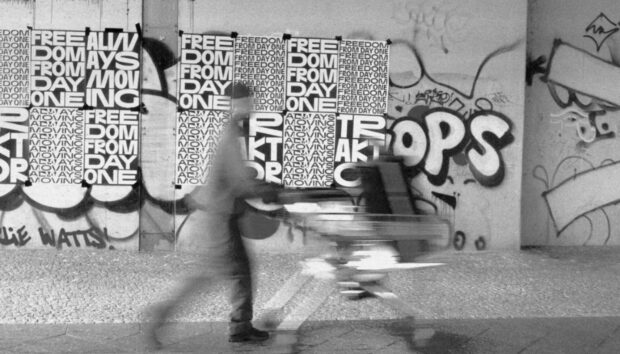LA-based film and TV composer Joseph Trapanese is known for high profile collaborations; he worked alongside Daft Punk on the Tron: Legacy soundtrack, with Mike Shinoda on the Raid series, and with M83 on multiple projects. He also scored the NWA biopic Straight Outta Compton and recent Netflix sci-fi Project Power.
So, given his wealth of experience in the world of film music, we thought we’d invite Joseph to bring some of that Hollywood magic to MASSIVE X by way of a free patch. The result, One Patch to Rule Them All, looks relatively simple at first glance, but its secrets are revealed as soon as you touch the mod and pitch wheels.
All the way up, the mod wheel delivers a spaced-out-yet-subdued saw-wave pad, and at the other end of it’s travel, you’ll find a bright FM lead with a sharp attack – plus there’s a whole spectrum of interesting tones to be found between those extremes. Add in some pitch-wheel movement and it’s possible to go from subtle wobbles to detuned dive-bombs.
Listen to Joseph’s patch below, download it for yourself, then read on to find out how it was made and get some insights on film and TV work from Joseph himself.
Let’s start with your Massive X patch. Can you tell us the inspiration behind the patch ?
I wanted to create a patch that could be used right away and inspire creativity. But I also wanted to make sure that the most accessible controllers – pitch bend and modulation – could create dramatic differences in timbre and shape so that the sound could be very flexible and evocative. My demo is actually all based on this one preset, just multiple instances of Massive X with different settings of modulation and pitch bend.
You were previously using the original MASSIVE. Did it take much time to get used to MASSIVE X?
It definitely took a moment for my eyes and fingers to adjust, but once I understood the new look, the plugin was more approachable than ever. I think it’s important for a plugin to invite users to make mistakes and try daring things, and the new interface does exactly that. The sound engine itself and the quality of the oscillators and sub-oscillators is exceptional. It’s great to have a plugin that sounds just as good as hardware.
Today, you’re an award winner composer, but you started out as more of a technologist. You were teaching electronic music, correct?
One of my earliest jobs in LA was as a professor of electronic music at UCLA. I completed my Master’s degree at the school in 2008 and taught there from 2008-2011.
How does that focus on electronics play into your scoring work nowadays?
To me, electronic sound is another part of my aural palette. I don’t think of ‘electronics’ as one element and ‘orchestra’ as another – it’s important to me that both sides fit together perfectly to create a beautiful tapestry without any seams. To me, the words ‘orchestration,’ ‘production,’ and ‘mixing’ are almost interchangeable.
Can you explain how you came to collaborate with Daft Punk for Tron: Legacy?
From 2007–2009, I would occasionally work for Christophe Beck when he was very busy. I learned a lot from him and his team at the studio. Chris’s brother is Chilly Gonzalez, an amazing artist and producer who lives in Europe and has worked with Daft Punk. When Thomas and Guyman came to Los Angeles, they wanted to meet Chris and discuss film music. After speaking with them for some time, Chris realized they wanted to score Tron: Legacy on their own, but needed someone to help them through the process. He recommended that they hire me.
Did that initial success lead to you working with Anthony Gonzales (M83) and Dr. Dre, who you worked with on Straight Outta Compton?
I love collaboration – all kinds! To me, collaborating with another musical artist is the same as collaborating with a filmmaker. Sometimes it’s even easier to have another musician with you because you have someone to turn to when you run out of ideas. What is most important is that the entire team is unified in achieving the goal of the filmmaker and telling a beautiful story with love and excitement.
It’s also inspiring working alongside great artists like M83 and Dr. Dre. It has made me a better artist and driven me to develop my own voice.
Would you describe yourself more as a traditional musician or a producer/tweaker?
I’m certainly more comfortable in the control room or on the podium, if that’s what you mean! I’m a silent performer. I love sharing my music with great musicians and realizing its full potential alongside them. I try to channel them to be inspired, and be their best. There is so much magic in a great studio with great artists and great instruments – so I suppose in that way, I’m quite traditional! But I’m also passionate about using every tool possible to bring unique emotions to an audience. For instance, I recently recorded a whole film score at weird sample rates – 88k, 96k, 176k, 192k depending on the material – and I forced my DAW to play back the audio at half, quarter, and three-quarter speeds so that everything felt wrong. In that way I’m a tweaker too!
Interview by Carmen Rizzo








